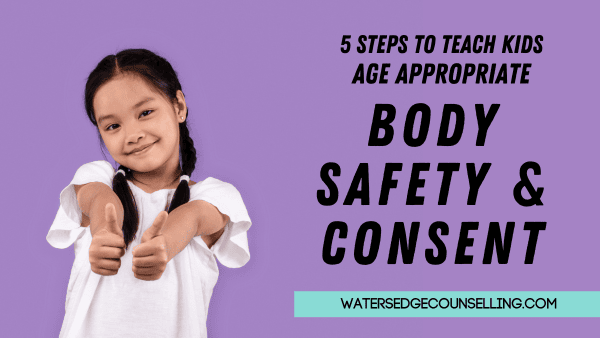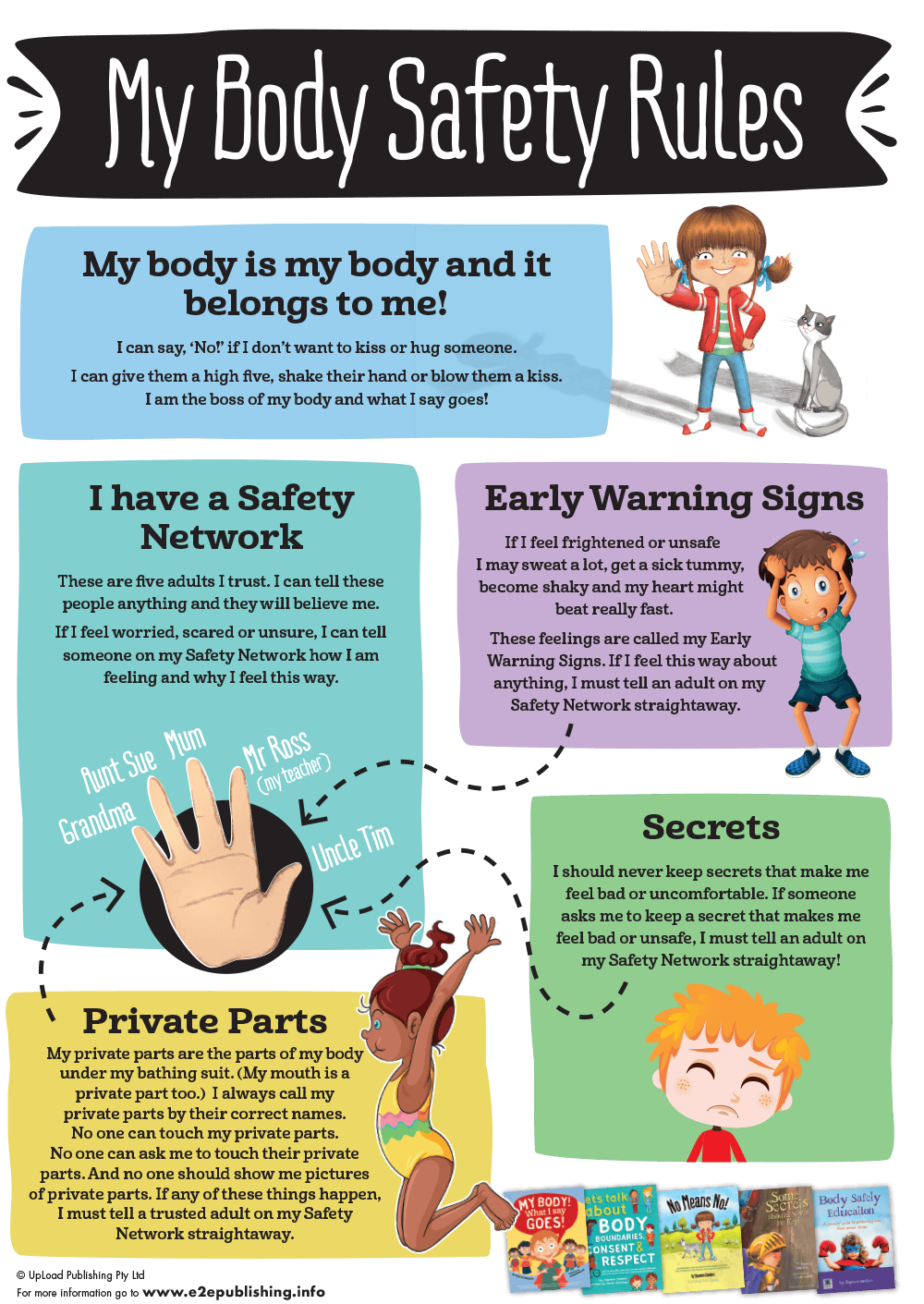
Trying to explain body safety and consent to kids can feel awkward. We don't want our children to feel unsafe in the world, but we do want them to know they are in control of their bodies and have choice about how people interact with them.
So how do we start? Do we point to certain parts of the body and come up with colourful names? Do we give them choice, or demand they act in certain ways with certain people? Do our rules change depending on the location?
If you feel overwhelmed, take a breath. Because while this is an important conversation, the fact you know and love your child is the foundation. You won't do this perfectly, but you can do this well.
A lot of us grew up being told to give grandma and grandpa a kiss and hug. Or maybe it was the next door neighbour, or family friend. Our parents or guardians told us to do this because they wanted to teach us to be polite and respectful. But over the last few decades, we have learned that this is not always healthy. And now, we want to rewrite the narrative for our own children.
The Five Body Safety Rules
So where do we start? By telling our kids that they have control and choice over their own bodies. And we do this by teaching them five body safety rules. The team at e2 Publishing have made a fantastic infographic for adults (and our kids) to explain these rules. Here is a run down:
- My body belongs to me
No one can touch me, in any way, without my consent. I have options about how I can interact with people, so if I don't want to give them a hug, I might choose to give them a high five. - I have a safety network
I have five people (one for each finger on my hand) that I can talk to if I ever feel yucky, scared or unsure. These people will believe me when I talk to them. - I know my body's warning signs
Sometimes we feel bad, yucky, or unsafe. Our bodies know before our brains do. So if I am sweating, feeling shaky, or start breathing quickly, that could be a sign I need to run away and talk to my safety network. - I don't have to keep bad secrets
I don't have to keep secrets that make me feel bad, scared or uncomfortable. I can always tell my safety network about anything. - My private parts are MY private parts
My private parts are anything that is hidden by a bathing suit, and my mouth. I know the correct names for these body parts. No one can touch my private parts, or tell me to touch their private parts.
Making it age-appropriate
I hear you saying, "This is great, but how do I have this conversation with my kid? They are x years old, They don't understand everything."
You're right, and that's why we adapt our conversations depending on their age and developmental stage of a child. Watch the video below for an interview with author, publisher and teacher Jayneen Sanders about how educators (and parents/guardians) can speak to their kids about the body and consent in an age-appropriate way.
Push any awkwardness of fear you have aside, and use these tools to have this important conversation with your child. You're teaching them tools that will stay with them for life.
